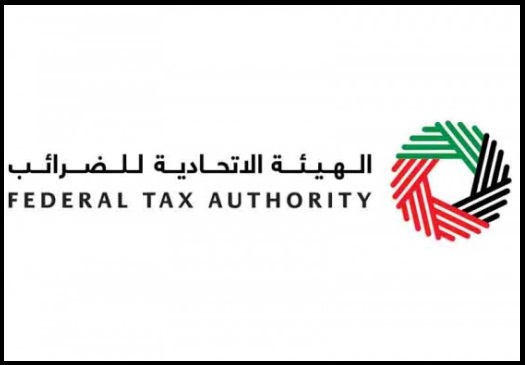
Conflict of Interest at the Highest Levels: Analysis of the Smuggling In...
Адвокат Максим Раков прокомментировал беспрецедентную ситуацию в израильском правоохранительном сообществе на радио РЭКА 1 февраля 2026 г.

December 09, 2022, the UAE have introduced a new law (Federal Decree-Law No. 47 of 2022) on the Taxation of Corporations and Businesses (“Corporate Tax Law”, “CTL”)[1]. Earlier, we have slightly covered the essentials of this law. In this article, we will deepen into its most important issues that it introduces, and the consequences it may bring to those conducting business in the UAE or using the country as a convenient jurisdiction.
The CTL is a basic law that introduces the main framework of ongoing UAE corporate tax reform. While it contains the key terms and definitions, the further provisions are to be enacted by the Cabinet of Ministers of the UAE and by the UAE Minister of Finance.
The CTL establishes tax reporting obligations and imposes tax (at various rates) on an income derived by Taxable Persons (so-called Taxable Income) from business conducted in or in connection with the UAE. The CTL provides for multiple tax reliefs and mechanisms that simplify the payment of this tax. The rate of the corporate income tax may vary from:
The UAE Tax Regulation Becomes More Like the Other Corporate Tax Jurisdictions
The wording of the CTL classifies all natural persons and legal entities maintaining business in (or related to) the UAE (therefore taxable under the CTL) into several groups: Residents, Non-Residents, Qualifying Free Zone Persons (more on each – in correspondent provisions of the CTL). According to these groups, different corporate tax rates are applied.
Before the CTL, there was no requirement for legal entities and natural persons to submit any tax statements (tax returns) and to report any income to the UAE financial authorities (unlike VAT statements that were introduced prior to the CTL). From now on (the CTL applies to the tax periods commencing on or after 1 June 2023 – Art. 69 CTL), all taxable persons are required to register for Corporate Tax and obtain a Corporate Tax Registration Number, which is a precondition for classification and entitlement for reduced tax rates.
Taxable Persons are required to file their Corporate Tax return for each Tax Period within 9 months from the end of the relevant period (the First Tax Period for the CTL starts at 1 June 2023 and ends at 31 May 2024; the Return Filing period for the First Tax Period starts at 1 June 2024 and ends at 28 February 2025). The same deadline will generally apply for the payment of any Corporate Tax due in respect of the Tax Period for which a return is filed.
Unlike before, there is a standard set of data that should be included in the Tax Return (just like in the other jurisdictions).
Transfer Pricing According to the CTL (Transactions with Related Parties)
The notable feature of the CTL framework is a transfer pricing regulation that reflects the connection of a person (legal entity or natural person) to the other legal entities. There are several types of this connection recognized according to the CTL: Related Parties and Connected Persons, regardless of whether they are registered in one of the Free Zones, on the mainland, or in a foreign jurisdiction.
The general rule is that transfers made to the connected persons or to the persons related according to the so-called arm’s length principle are accepted. Otherwise, the UAE Tax Authority is entitled to disregard such transaction in full or in part.
Following the UAE Tax Authority special request, such taxable persons may be required to disclose additional information on their transfers to Related Parties and Connected Persons, as well as to prove the arm’s length nature of certain transactions within 30 days following such request.
Broad UAE Cabinet Subsidiary Legislation Authority and Free Zone Persons Taxation
As mentioned earlier, Free Zone-registered legal entities and natural persons, should they comply with the rules stated in the CTL, shall be granted a qualifying status on their Qualifying Income that provides for 0% rate of the new corporate tax.
The notable feature of this provision is that even if a Free Zone Person is granted such qualified status, the period for which this 0% rate incentive can be given depends on the regulation of the specific Free Zone authority and in any case shall not exceed 50 years (Art. 18(4) CTL). More to say, this 0% can be too increased up to 9% upon the UAE Cabinet’s special decision.
It’s important to say that the CTL framework intentionally omits many details and resorts to UAE Cabinet or UAE Minister of Finance to issue subsequent pieces of subsidiary legislation on many subjects. Additionally, the UAE Cabinet, UAE Tax Body, and UAE Minister of Finance are given broad authority in interpretation of the CTL.
Not only the tax rate can be eventually raised for the Qualifying Free Zone Persons, but even some of the criteria an entity should comply with to obtain a Free Zone Qualified Person status are subject to further clarifications (e.g., what can be considered an adequate substance of a person in the UAE or a nexus that reflects the business connection of a person in the UAE? What is a Qualified Income for the purposes of the Qualifying Free Zone Person status?). The contents of Tax Returns can be changed, as well as the additional information can be requested, and new tax incentives and reliefs can be introduced (the existing ones can be adjusted as well).
All these requirements and incentives provided by the CTL apply both to natural persons conducting business activity in the UAE Free Zones and legal entities.
Conclusions and Further Perspectives
As we can see from the analysis, the new UAE Corporate Tax Law drastically reforms the legal framework of the UAE tax arrangements.
The UAE introduces the standard tax returns and income report documentation. The UAE ceases to be a no-tax haven it once used to be for all kinds of businesses and natural persons conducting business activities all over the world. The requirements for the entities to be considered a “Qualified Free Zone Person” are substantial and are subject to further clarifications by the Cabinet.
It is important to mention that the UAE Cabinet is given a broad discretion in interpretation and filling the blanks in the CTL framework.
A natural outcome of this recent legislative change is an increased requirement for the accounting and tax reporting services for all UAE companies, both on the mainland and Free Zone-based. Additionally, some of the mainland companies with business focused outside the UAE and GCC, may consider relocating to Free Zones and claim eligibility for reduced tax rate.
We can expect additional developments in this matter over the coming months.
[1] The text of the law and basic FAQ section: https://mof.gov.ae/corporate-tax/.